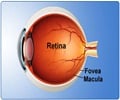Genome editing therapies offer the potential to correct mutations causing inherited retinal degenerations, which could lead to blindness.

‘Testing newly-developed CRISPR technologies in human retinal tissue, organoids and in vivo will help to highlight the most-viable therapeutic approaches for treating inherited retinal diseases in the future.’
Read More..




"Currently, the field is undergoing rapid development with a number of competing gene editing strategies, including allele-specific knock-down, base editing, prime editing, and RNA editing, are under investigation. Each offers a different balance of on-target editing efficiency versus off-target risks," state Kanmin Xue, University of Oxford, and coauthors.Read More..
"Testing these newly-developed CRISPR technologies in human retinal tissue, organoids and in vivo will help to highlight the most-viable therapeutic approaches for treating inherited retinal diseases in the future."
Characterizing the rapidly evolving field of CRISPR-Cas based genome editing and current strategies for extending the capabilities of CRISPR-Cas9, the article also features epigenetic editing, the risks of retinal gene editing, and approaches in development to control Cas9 activity and improve safety.
"The eye is an ideal target for in vivo gene editing. Dr. Xue's review provides an excellent overview of the current state of the art," says Editor-in-Chief of Human Gene Therapy Terence R. Flotte, MD, Celia and Isaac Haidak Professor of Medical Education and Dean, Provost, and Executive Dep uty Chancellor, University of Massachusetts Medical School.
Advertisement










